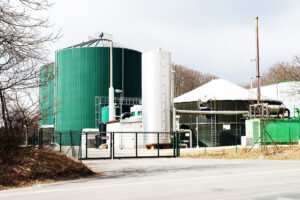IEA’s latest forecast features biogas section for first time

Its Renewables 2023: Analysis and forecasts to 2028 report details how the world’s capacity to generate renewable electricity is expanding faster than at any time in the last three decades, giving it a real chance of achieving the goal of tripling global capacity by 2030 that governments set at the COP28 climate change conference last month.
The amount of renewable energy capacity added to energy systems around the world grew by 50% in 2023, reaching almost 510 gigawatts (GW), with solar PV accounting for three-quarters of additions worldwide, according to the report.
The latest analysis is the first comprehensive assessment of global renewable energy deployment trends since the conclusion of the COP28 conference in Dubai in December.
The report shows that under existing policies and market conditions, global renewable power capacity is now expected to grow to 7,300 GW over the 2023-28 period covered by the forecast. Solar PV and wind account for 95% of the expansion, with renewables overtaking coal to become the largest source of global electricity generation by early 2025.
Despite the unprecedented growth over the past 12 months, the world needs to go further to triple capacity by 2030, which countries agreed to do at COP28, according to the IEA.
Biogas and biomethane
For the first time in the IEA’s renewable energy market report series, a special section is dedicated to biogas.
It noted that policy support has surged strongly in the last two years owing to a combination of factors.
First, with energy security concerns caused by Russia’s invasion of Ukraine and the subsequent energy crisis, biogas is now regarded as a domestic energy source that can reduce dependency on natural gas imports and support energy security in many countries.
Second, in view of the urgent need to limit global temperature rise to 1.5°C, countries have begun to view biogas as a ready-to-use technology that can help accelerate decarbonisation in the short term, and they are therefore developing specific policies that include biogas as a key component in their energy transition strategies.
The report observed that combined global biogas and biomethane production reached more than 1.6 EJ in 2022 – a 17% increase from 2017.
Almost half of the production is based in Europe, with Germany alone meeting almost 20% of global consumption.
Another 21% is produced in China, followed by the United States (12%) and India (9%).
Compared with 2017-2022, global biogas production growth is expected to accelerate over 2023-2028 thanks to the introduction of impactful new policies in more than 13 countries in 2022-2023, according to the document.
The most growth will be in Europe and North America, owing partially to established infrastructure and experience, and driven by previous policies that make rapid deployment in a five-year term possible.
China and India also have ambitious expansion plans, but their lack of infrastructure limits growth in the next five years, it added.
However, since both countries have considerable biogas production potential, rising energy demand and ambitious decarbonisation goals, they will be ready for accelerated growth beyond 2028.
Commenting on the inclusion of the special section dedicated to biogas and biomethane, Charlotte Morton OBE, chief executive of the World Biogas Association, said: “This is a huge milestone for our industry.
“Not only does the IEA dedicate a significant number of pages to the role our industry can play as a solution to the world’s current economic and environmental crises, it anticipates the sector growth rate to accelerate from 19% in 2017-2022 to 32% in 2023-2028 as a result of impactful new policies being introduced in more than 13 countries in the past year.
"This is welcome recognition of the growing contribution that biogas and biomethane can make towards the world’s economy and towards the fight against climate change – although the IEA states that an even higher pace of growth is required to meet the Net Zero objective for 2030."


















